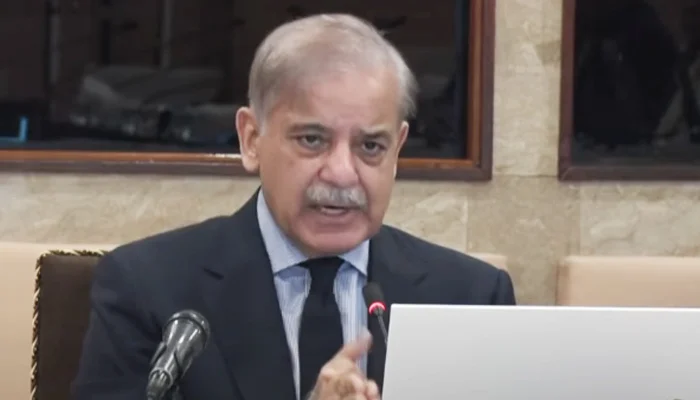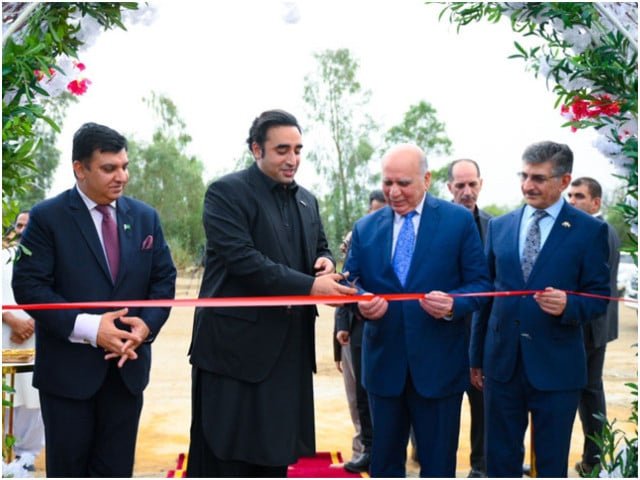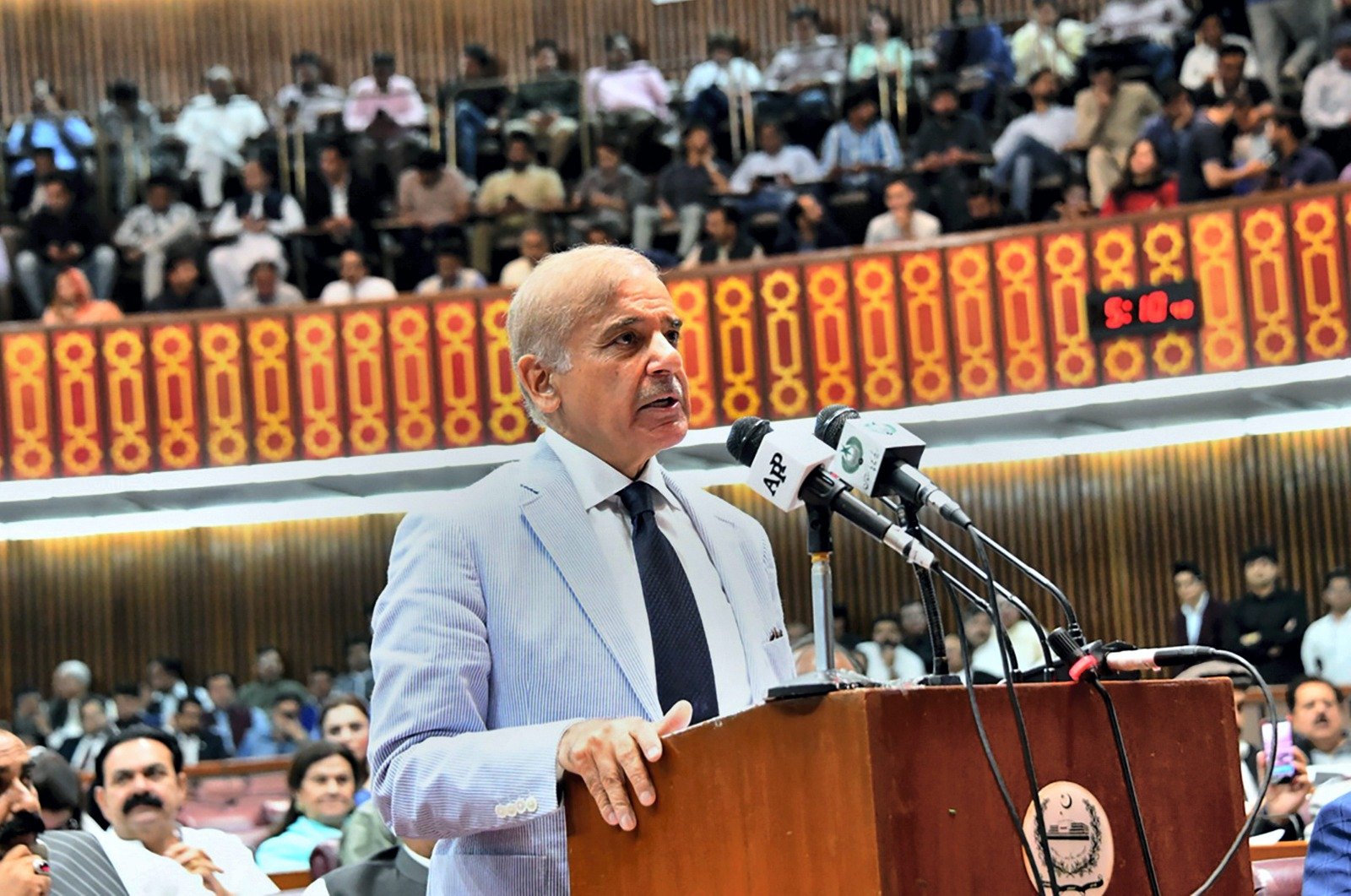PM Assures Public of Power Bill Reductions Amidst Persistent Protests

Prime Minister Shehbaz Sharif emphasized on Friday that reducing electricity bills is a top priority for the coalition government and urged all stakeholders to avoid politicizing the issue amidst growing public discontent over rising power costs. His comments came as nationwide protests erupted, drawing attention to the severe economic strain high electricity tariffs have placed on ordinary citizens.
Key Points from Prime Minister Shehbaz Sharif’s Address:
1. Government’s Commitment to Reducing Electricity Costs:
- Priority Agenda:
PM Shehbaz Sharif stated unequivocally that lowering electricity bills is a central agenda of the coalition government. He stressed that the government is fully aware of the burden that high electricity prices have placed on the populace and is actively seeking solutions to alleviate this financial strain. - Ongoing Efforts:
The Prime Minister highlighted the government’s ongoing efforts to address the issue, including initiatives to explore alternative energy sources, reduce dependency on expensive fossil fuels, and reform the energy sector to improve efficiency and lower costs.
2. Avoiding Politicization of the Issue:
- Call for Unity:
In his speech, PM Sharif appealed to political parties, media, and civil society to refrain from politicizing the electricity crisis. He argued that the issue of rising electricity costs is a national challenge that requires collective effort and constructive dialogue, rather than political point-scoring or partisan bickering. - Importance of Stability:
The Prime Minister underscored the need for stability and unity to effectively tackle the energy crisis, asserting that politicization could hinder progress and exacerbate public frustration.
3. Addressing Public Protests:
- Acknowledgment of Public Discontent:
The Prime Minister acknowledged the ongoing protests across the country, recognizing the legitimate grievances of the people regarding high electricity bills. He expressed empathy for the affected households and businesses, emphasizing the government’s understanding of their plight. - Commitment to Dialogue:
PM Sharif committed to engaging in dialogue with various stakeholders, including consumer advocacy groups and industry representatives, to address their concerns and develop practical solutions to the energy pricing dilemma.
4. Proposed Measures to Tackle High Electricity Costs:
- Energy Sector Reforms:
The Prime Minister reiterated the government’s plans to implement comprehensive energy sector reforms aimed at improving efficiency, reducing transmission losses, and enhancing the capacity of power generation to ensure sustainable and affordable electricity. - Diversification of Energy Sources:
Emphasizing the need for a diversified energy mix, PM Sharif mentioned ongoing initiatives to invest in renewable energy projects, such as solar and wind, to reduce reliance on costly imported fuels and achieve long-term energy security. - Subsidies and Relief Packages:
The government is considering targeted subsidies and relief packages for low-income households and small businesses affected by high electricity bills. These measures aim to provide immediate relief while long-term solutions are being developed.
5. Economic Impact and Challenges:
- Global Energy Crisis:
PM Sharif highlighted the global context of rising energy prices, citing disruptions in international supply chains and geopolitical tensions that have contributed to increased costs for imported energy sources, which, in turn, affect domestic electricity tariffs. - Inflationary Pressures:
The Prime Minister acknowledged the broader economic impact of high electricity costs, including inflationary pressures that have exacerbated the cost of living and affected the purchasing power of consumers across the country.
Public Reaction and Ongoing Protests:
Despite the Prime Minister’s assurances, protests against high electricity tariffs have continued to spread across Pakistan. Demonstrators have taken to the streets in several major cities, expressing anger over the soaring costs and demanding immediate government action.
Protests in Major Cities:
- Karachi:
Protesters gathered in Karachi, blocking major roads and chanting slogans against the government’s energy policies. The demonstrators called for a significant reduction in electricity prices and criticized the perceived lack of action to address their concerns. - Lahore:
In Lahore, large crowds assembled outside key government buildings, holding placards and demanding relief from the financial burden of escalating electricity bills. The protests have drawn participants from various sectors, including traders, laborers, and households struggling to cope with rising costs. - Islamabad:
In the capital city, Islamabad, citizens organized peaceful rallies, urging the government to prioritize energy affordability and implement immediate measures to ease the economic pressure on ordinary Pakistanis.
Key Demands from Protesters:
The ongoing protests have been marked by several key demands from the public, reflecting widespread discontent with the current energy pricing situation:
- Immediate Reduction in Tariffs:
Protesters are calling for an immediate reduction in electricity tariffs, urging the government to subsidize power costs and provide financial relief to households and businesses grappling with inflated bills. - Transparency and Accountability:
There is a growing demand for transparency and accountability in the energy sector, with calls for audits of power distribution companies and the elimination of inefficiencies that contribute to high consumer costs. - Long-term Energy Solutions:
Citizens are advocating for sustainable, long-term solutions to Pakistan’s energy challenges, emphasizing the need for investments in renewable energy, infrastructure upgrades, and strategic planning to secure affordable power for the future.
Government’s Response and Next Steps:
In response to the protests, the government has reiterated its commitment to addressing the energy pricing issue and implementing measures to stabilize electricity costs. Key steps being considered include:
- Negotiations with Power Producers:
The government is engaging in negotiations with independent power producers (IPPs) to renegotiate contracts and explore options for reducing the cost of electricity generation. - Implementation of Energy Reforms:
Plans are underway to fast-track energy sector reforms, focusing on improving governance, reducing technical losses, and enhancing the efficiency of power distribution networks. - Public Communication Campaign:
The government plans to launch a public communication campaign to inform citizens about ongoing efforts to tackle the energy crisis and provide updates on progress toward achieving more affordable electricity. - Engagement with Stakeholders:
PM Sharif has called for a series of consultations with stakeholders, including industry experts, consumer groups, and policymakers, to develop a comprehensive strategy for energy affordability and sustainability.
Prime Minister Shehbaz Sharif’s address highlights the government’s commitment to addressing the urgent issue of high electricity tariffs in Pakistan. As protests continue to underscore the public’s frustration, the government’s response will be crucial in restoring confidence and ensuring that effective solutions are implemented to alleviate the financial burden on citizens.
The focus on unity, collaboration, and long-term planning will be essential in navigating the complex challenges of energy affordability and achieving a stable, prosperous future for Pakistan’s energy sector. As the government works to address the immediate concerns of the populace, it must also prioritize strategic reforms that pave the way for sustainable, affordable, and reliable electricity for all Pakistanis.










